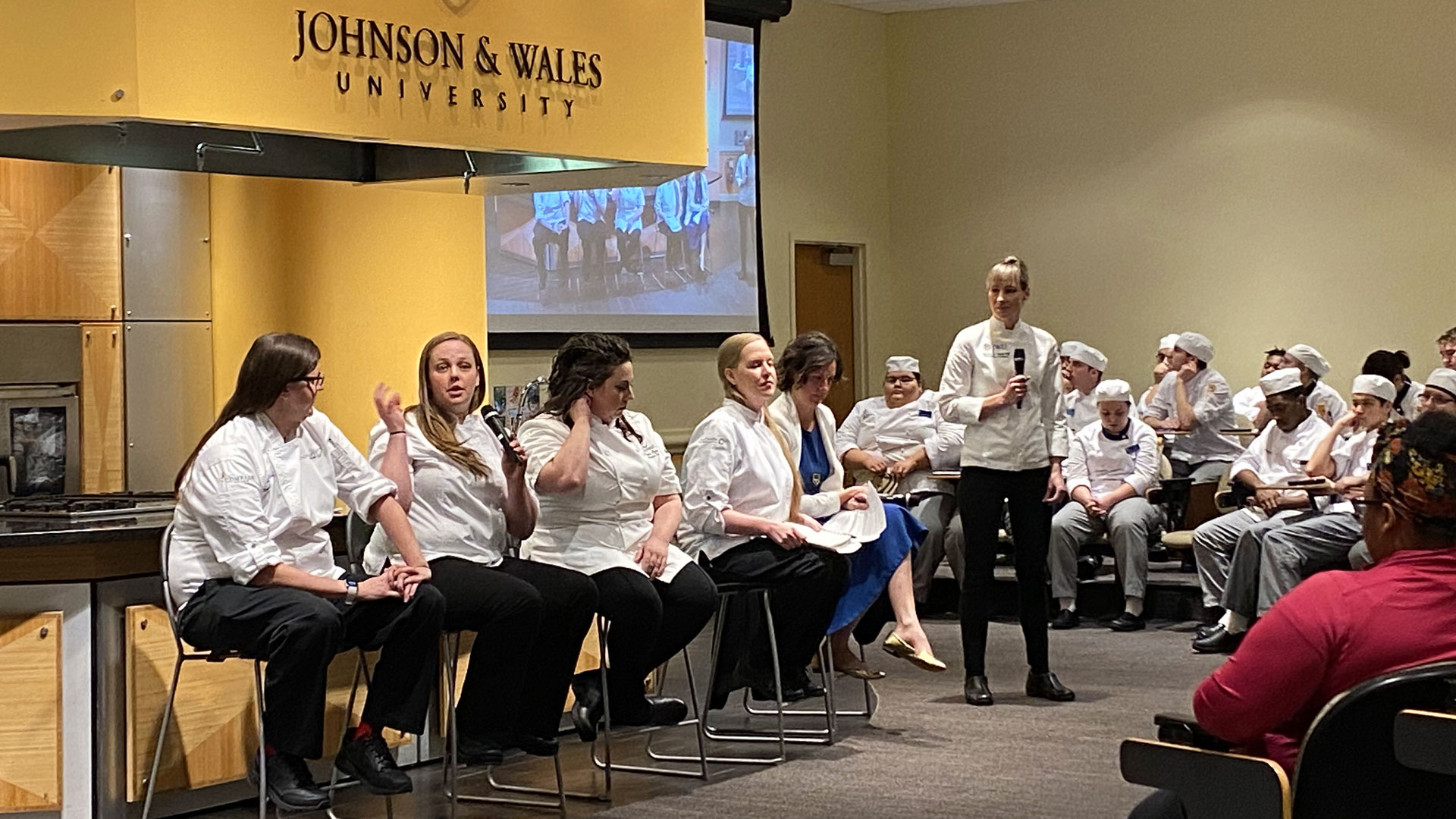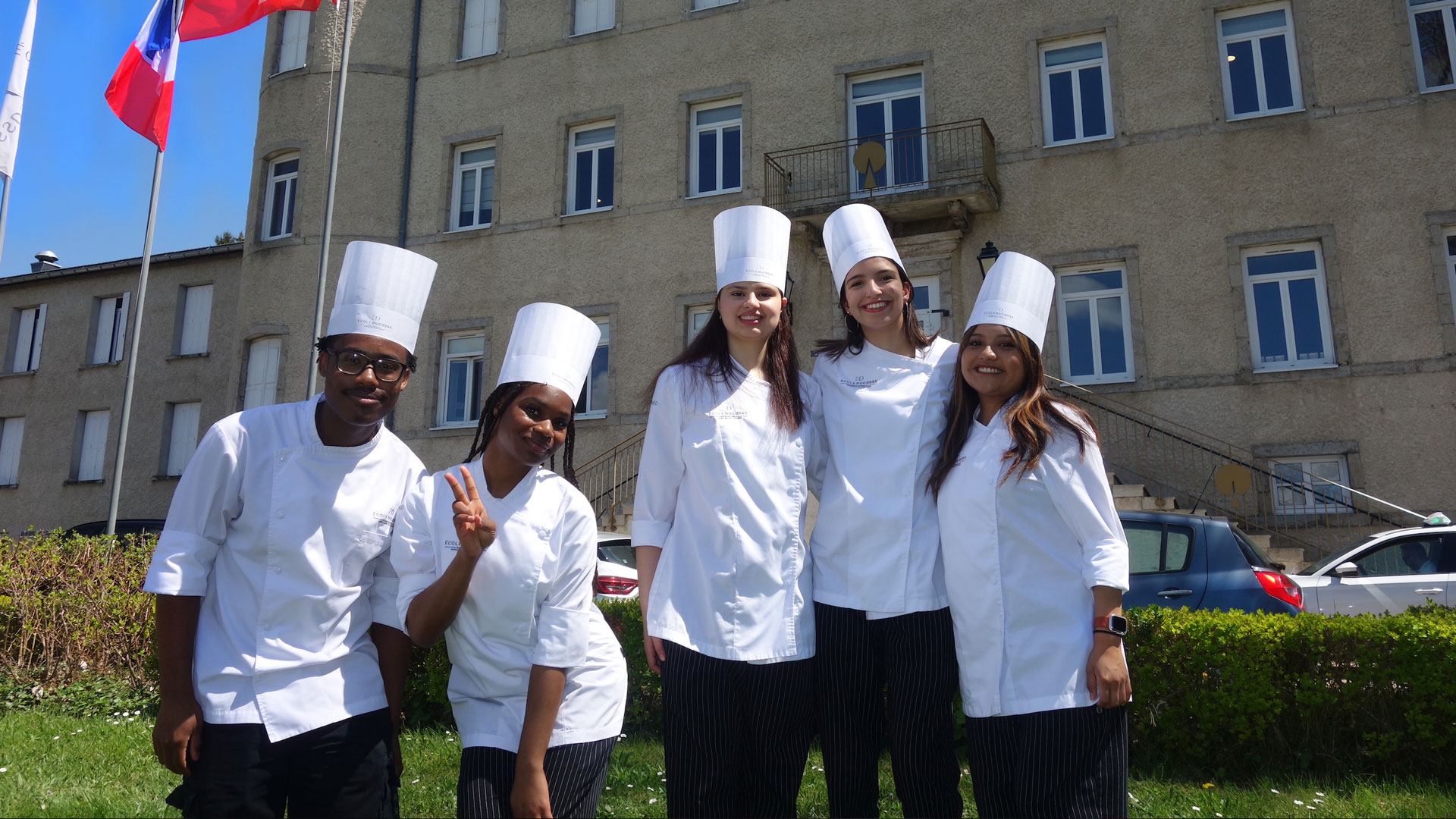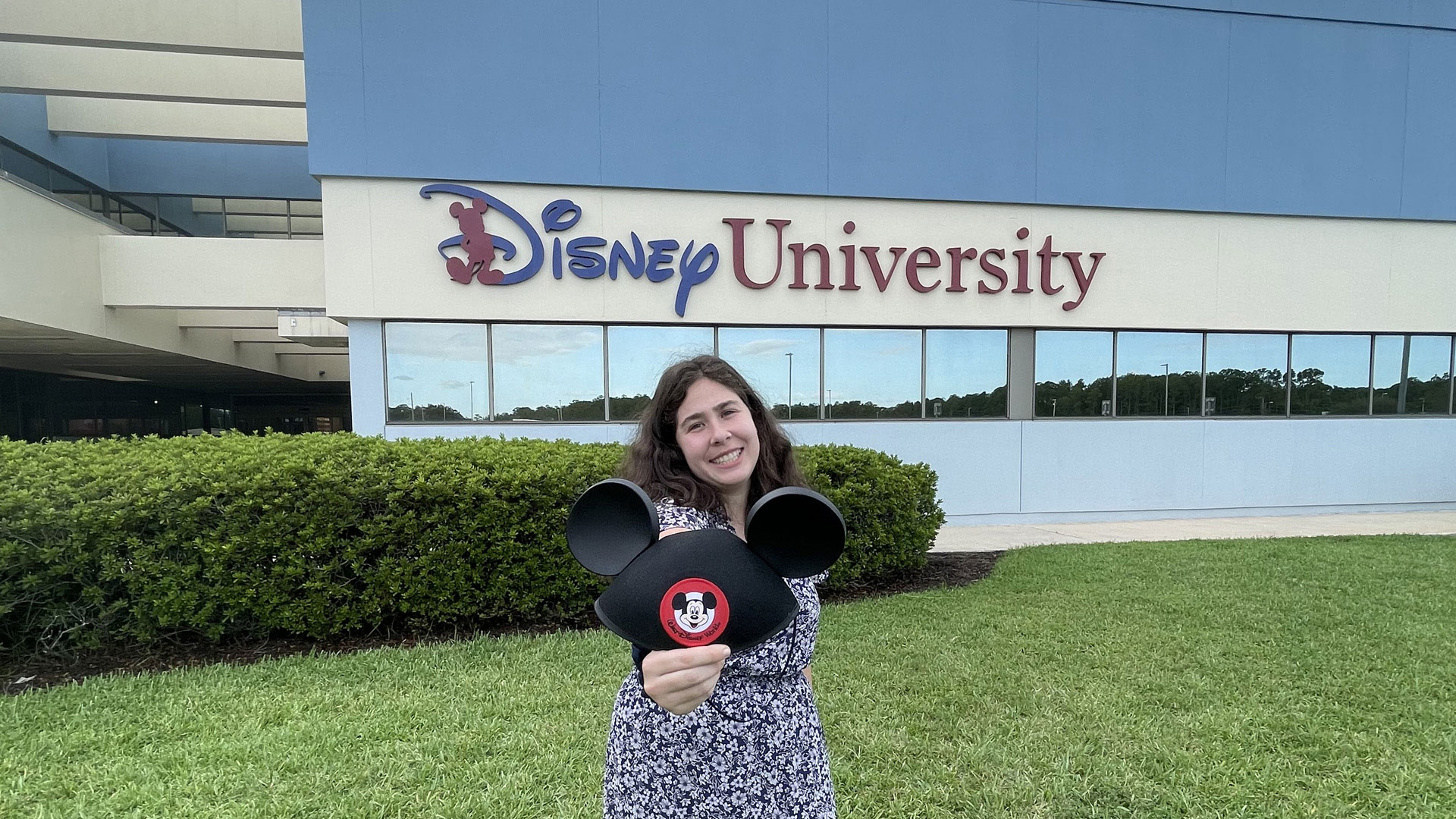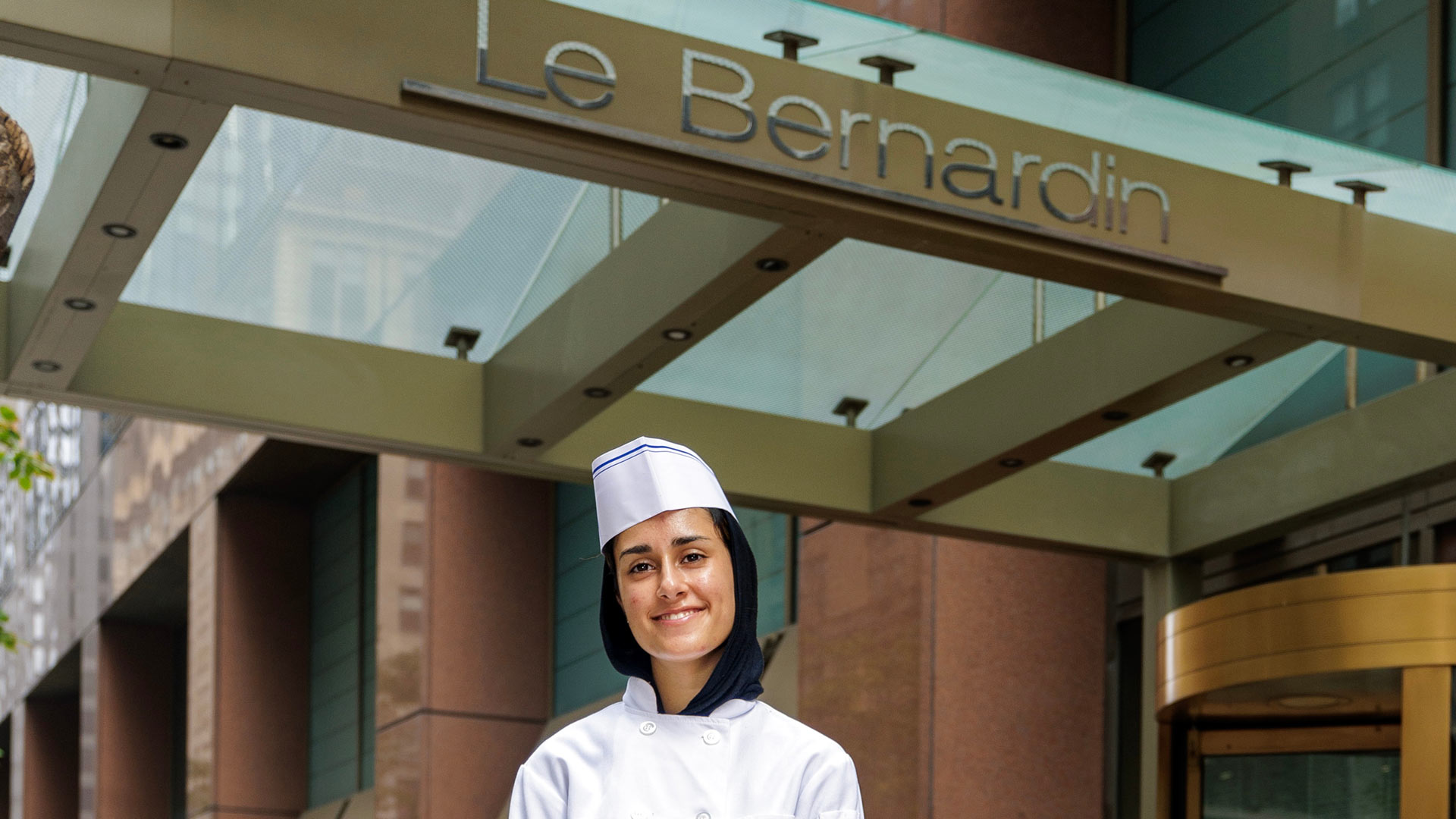Compass Day Panel Spotlights Women in Culinary Leadership
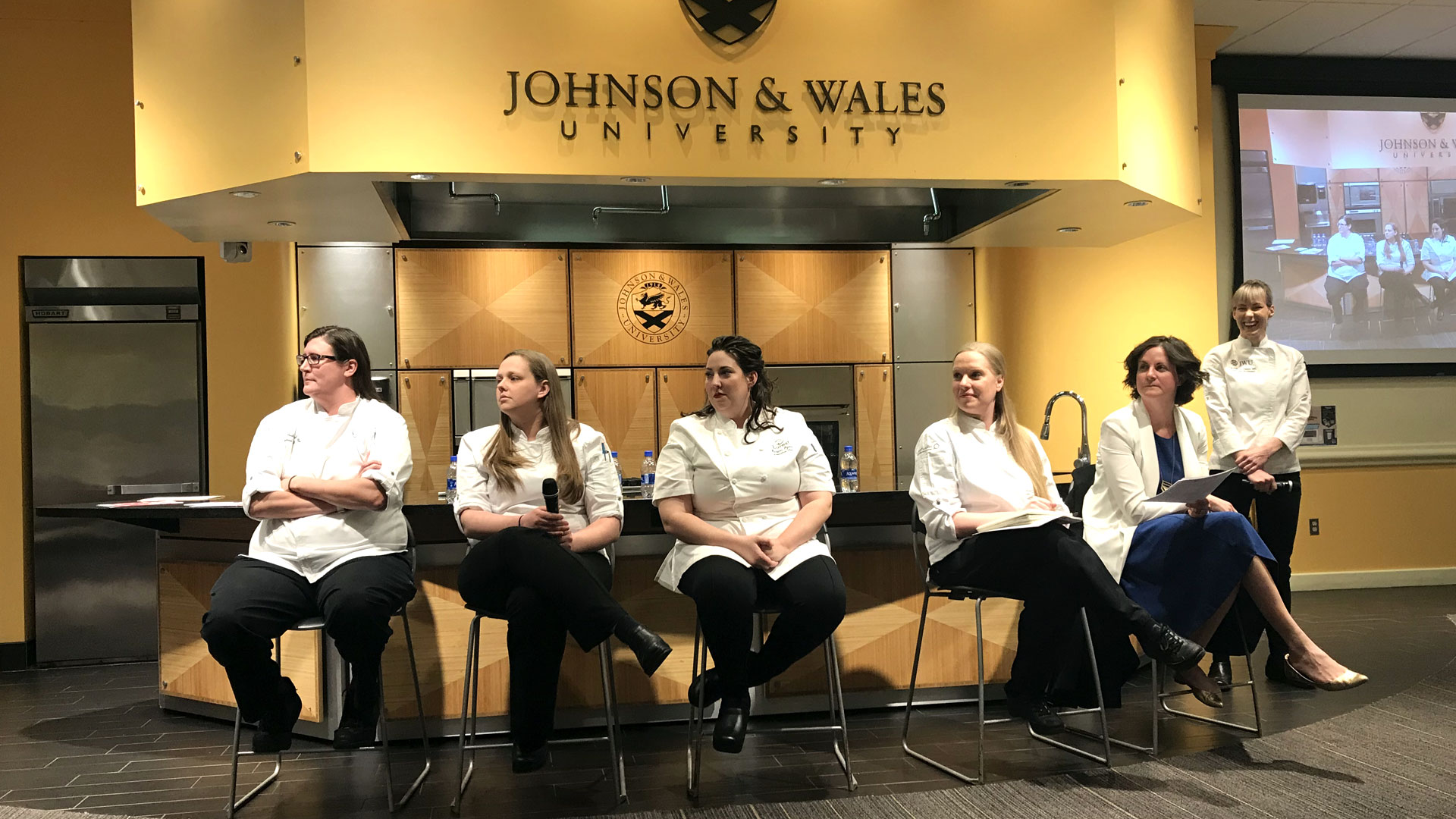
Sheri Young, JWU Providence’s dean of Experiential Education & Career Services, kicked off the recent “Women in Culinary” panel discussion with some sobering statistics:
- 50% of culinary graduates in the US are women
- Almost 60% of food service/prep workers in the US are women
- Of this percentage, 19% have attained the title of chef
- Less than 7% of executive chefs are women
“What accounts for this extreme imbalance? How can we address it?” Young asked the crown of aspiring chefs. “It will affect all of you in this industry.”
“What accounts for this extreme imbalance? How can we address it?”
As part of JWU Providence’s 15th annual Compass Day, which also included classroom visits and networking/interview sessions, the panel’s focus was to highlight women in leadership roles — while being realistic about the challenges they face on a day-to-day basis.
The Compass Day panel — which included two JWU alums — was well-balanced in terms of experience and career expertise; the event included 5 executive chefs and one hospitality project manager with a diverse background in fine dining, culinary education, and media production.
Associate Professor and moderator Lauren Haas opened with a weighty question: “Do you feel that gender has positively or negatively affected your career?”
Lisa Sanders ’07, an executive chef with Morrison Senior Living, shared an anecdote about her first job at a country club: “They put me in the pantry — that’s where they put the girls, right? Salads and desserts. I just pushed through — you have to show them what you’re made of! A few months later, I was on the line and guys were doing desserts. I was ok with that!”
“When you surround yourself with everyday heroes, you start to want to be like them.”
Andrea Greer, an executive chef with Morrison’s healthcare division, has experienced both sides in her career. “I had to fight my way to the hot line at Morrison,” she admitted. But she contrasted that with a positive: “I work in hospitals, and I’m known as a firefighter. As a female, I can walk into a fire — a hospital kitchen that’s a mess — and I can respect everyone. I teach them to take a step back: ‘Yes, it’s a hospital, but we’re not actually doing brain surgery, and we are going to get through this.’”
Sarah Bodner ’09, an executive chef with Chartwells, emphasized the importance of being yourself, regardless of gender: “Don’t be afraid to build a team with people who are going to challenge you. Don’t be afraid to make mistakes, but do so with grace and humility. I definitely made mistakes but I had a mentor I could confide in.”
Moderator Haas asked the panel to elaborate on the importance of mentors. Sarah picked up the thread: “When I was a kid, I worshipped Julia Child. I had these big ideals. I still want to be Julia, but on a day-to-day basis I also want to be like my division president. When you surround yourself with everyday heroes, you start to want to be like them. It’s pretty cool!”
All of the panelists implied that their move into corporate dining was prompted by a need for greater work/life balance. “Working for Compass gives me a Monday-to-Friday job that allows me to see family and friends. If being the chef of 11 Madison Park drives you, go for it! But contact Compass when you want Thanksgiving off,” quipped Peterson. Both Sanders and Raegan Ozaeta, executive chef at Eurest, mentioned the importance of being able to spend time with their kids. “I get my 4-year-old son in the kitchen and we just have fun,” said Ozaeta.
As for redressing the imbalances of the industry, there are no easy answers. “The #MeToo movement brought out allies —I see a big change happening, with more to come,” noted Greer. “I’d challenge all the men in the room to be an ally.”
